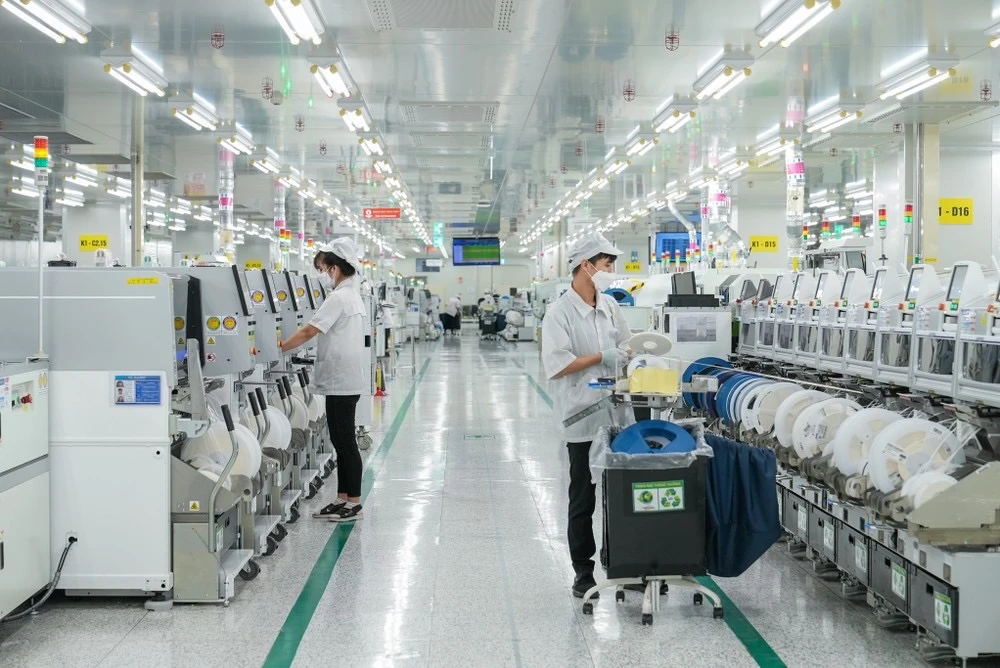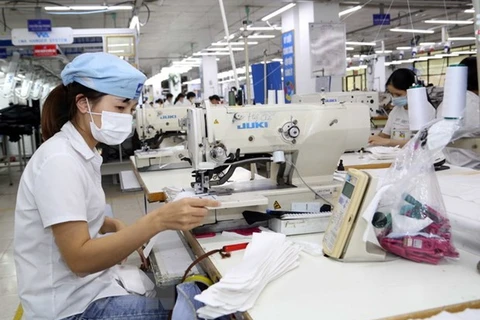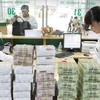
Hanoi (VNA) – Vietnam must be more resolute in economic institutional reforms to accelerate economic recovery as the institutional framework itself is a vital resource, serving as a "key" to unlocking potential and facilitating progress, said Dr. Tran Thi Hong Minh, Director of the Central Institute for Economic Management (CIEM).

Promoting digital and green transformation
According to Minh, in 2024 and beyond, the global economy may continue to face risks of slow recovery, and even downturn, due to the potential threats of crises in terms of energy, healthcare, food, environment, and finance. This is occurring amidst tightened policies to curb high inflation, prolonged disruptions caused by the Russia-Ukraine conflict, conflicts in the Middle East, and crises in the Red Sea.
Most recently, the World Bank (WB) has forecast that global economic growth is likely to experience a slowdown to 2.4% in 2024, and cut its growth forecasts for 2025 to 2.7%.

However, the International Monetary Fund (IMF) has a more optimistic outlook, projecting global economic growth to expand by 3.1% in 2024, and 3.2% in 2025, thanks to the higher-than-expected recovery in the US and some large emerging markets and developing economies, as well as financial support from the Chinese government.
The global outlook for foreign direct investment (FDI) in 2024-2026 may become more uncertain, Minh said, adding that the momentum of recovery in Asian economies linked with free trade agreements (FTAs) could provide additional incentives to retain existing foreign investors and attract new ones.
A positive aspect is that the ecosystem for digital transformation could develop more profoundly, she noted, stressing that the rise in non-cash payments will contribute positively to innovation and economic recovery and growth both globally and domestically.
Several challenges facing Vietnam
Promoting the momentum of socioeconomic recovery and development is a crucial priority in the 2024-2026 period, Minh said.
According to the expert, Vietnam’s import-export activities still face many challenges due to reduced demand and increased standards and barriers in partner markets, along with supply chain disruption risks and export competition from other Asian countries.

She stressed that the disbursement of public investment will play a particularly crucial role in driving economic growth, noting that strategic thinking and programmes to promote regional linkages will continue to maximise the spillover effects of public investment projects at the regional level.
Economic policies and reforms must be implemented to maintain and increase macroeconomic stability, control inflation, ensure large balances of the economy, and stabilise the financial system, Minh said.
She also underlined the need to make the stock market healthier, especially the corporate bond market, and accelerate the restructuring of credit institutions.
To achieve these objectives, it is essential to enhance the policy framework for developing the private sector, thereby creating conditions for this sector to recover strongly, increase resilience to economic shocks, and improve innovative capacity to join global and regional value chains, she went on.
Vietnam also needs to review and improve policy frameworks associated with new economic models such the green economy, digital economy, night-time economy to expand economic space and create favourable conditions for the private sector, she said.
Vietnam continues its process of international economic integration, with a focus on FTAs. Vietnam's approach has become clearer, aiming to effectively implement the international economic integration process, improve the degree of independence, autonomy, internal capacity, and competitiveness of the economy, Minh affirmed.
In 2024, Vietnam should pay due attention to reforming the fundamental macroeconomic framework, alongside implementing macroeconomic measures and other solutions, she said.
It is particularly important to formalise informal economic sectors, Minh went on./.






















